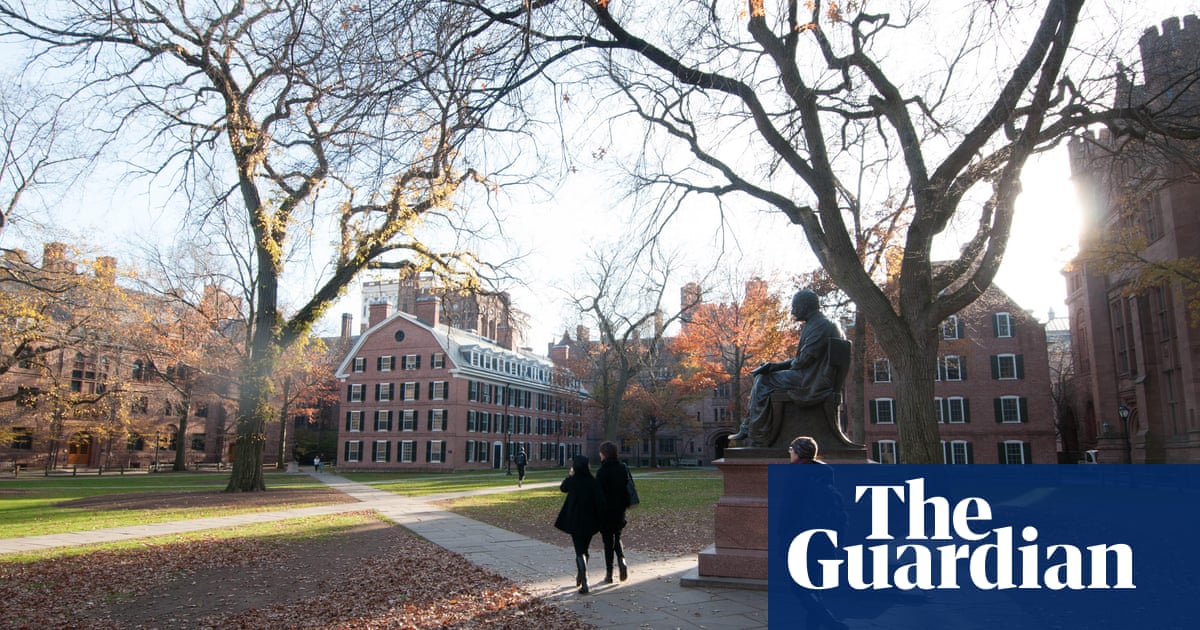
Brown, Yale and Columbia are among a group of universities that have agreed to pay a combined $62m to resolve a lawsuit that accused them and others of favoring wealthy applicants, pushing total settlements in the case to $118m.
Lawyers for a proposed class of more than 200,000 current and former US college students disclosed the latest settlements in a filing late Tuesday in Chicago federal court.
The University of Chicago, Vanderbilt, Emory and Rice had already reached settlements in the 2022 case, which alleged intentionally limiting financial aid in violation of US antitrust law.
The colleges were all part of a group called the 568 Presidents Group, named after section 568 of the Improving America’s Schools Act of 1994, which states it is not unlawful for institutions of higher education to use a shared formula for awarding financial aid, so long as they practiced “need-blind” admissions – meaning financial need was not considered when deciding whether to admit students.
The lawsuit has been nicknamed the “568 Cartel lawsuit” by some for the way this group of elite schools conspired to restrict aid by violating a pledge not to consider students’ finances in making admissions decisions, giving wealthy students an edge, the plaintiffs claim.
In the lawsuit, plaintiffs alleged these colleges “agreed among themselves on how to calculate need-based financial aid ‘to reduce or eliminate … price competition’ between members of the 568 Presidents Group,” the lawsuit states. “And ensure families pay ‘the maximum that they are capable of paying’.”
The 568 Presidents Group dissolved in the midst of litigation. The schools, including those that have reached settlements, have denied wrongdoing.
Yale and Emory said they would each pay $18.5m, Brown agreed to pay $19.5m and Columbia and Duke both said they would pay $24m.
The amount of Vanderbilt’s settlement has not been disclosed. The University of Chicago, which was the first school to settle, said it planned to pay $13.5m
The remaining defendants are: Cornell University, University of Pennsylvania, Georgetown University, Caltech, Northwestern University, Dartmouth College, the University of Pennsylvania, Yale University, Johns Hopkins University, Duke University, the Massachusetts Institute of Technology and the University of Notre Dame.
One of the plaintiffs’ lawyers, Robert Gilbert, in a statement urged leaders of other schools to “resolve the overcharges to middle class and working-class students”.
Brown in a statement said it decides student aid independently and “in alignment with our own institutional methodologies for determining need”.
Spokespeople for Columbia, Emory and Yale said settling allowed the schools to move past the case and focus on their academic missions.
Duke did not immediately respond to a request for comment.
Matthew Kennelly, a US district judge, must still approve the settlements. He declined to dismiss the lawsuit in 2022.
A similar lawsuit was brought against MIT and its fellow Ivy League private, elite schools in 1991. In that case, a federal judge ruled against the universities for violating antitrust laws by participating in a decades-long conspiracy together in order to fix tuition amounts, making the the cost to attend any of these schools relatively the same. After the lawsuit was filed, all universities except MIT agreed to sign a consent decree agreeing to stop these price-fixing activities.
Reuters contributed reporting
U.S. - Latest - Google News
January 25, 2024 at 12:29AM
https://ift.tt/45mJNzT
Brown, Yale and Columbia to pay $62m in lawsuit claiming they favor wealthy applicants - The Guardian US
U.S. - Latest - Google News
https://ift.tt/Z3Xhljz
Shoes Man Tutorial
Pos News Update
Meme Update
Korean Entertainment News
Japan News Update
Bagikan Berita Ini














0 Response to "Brown, Yale and Columbia to pay $62m in lawsuit claiming they favor wealthy applicants - The Guardian US"
Post a Comment